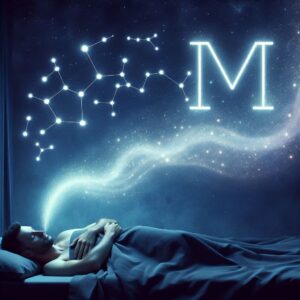Key Takeaways
Acupuncture offers different techniques to target insomnia, including body, auricular, and abdominal acupuncture.
Body acupuncture involves stimulating points along the meridians of the body to encourage relaxation and sleep.
Auricular acupuncture focuses on the ear to influence the body’s various systems, potentially benefiting sleep.
Abdominal acupuncture uses the abdomen as a microsystem, addressing internal imbalances to aid in better sleep.
Choosing the right type of acupuncture depends on individual needs, symptoms, and preferences.
Understanding Acupuncture for Sleeplessness
When the night falls and sleep should come easily, for many, it’s the start of a frustrating cycle of tossing and turning. Insomnia is a common sleep disorder that can make it hard to fall asleep, hard to stay asleep, or cause you to wake up too early and not be able to get back to sleep. But what if the answer to a restful night could be found in ancient practices? Acupuncture, a traditional Chinese medicine technique, has been used for thousands of years to restore balance within the body and it might just be the remedy for your sleepless nights.
Acupuncture works on the principle that energy, or ‘Qi’, flows through the body along pathways known as meridians. When this flow is disrupted, it can lead to various health issues, including insomnia. By inserting fine needles into specific points along these meridians, acupuncture aims to restore the flow of Qi, thereby improving sleep.
How Acupuncture Targets Insomnia Symptoms
Now, you might be wondering, how does poking needles into your body help you sleep? Well, it’s believed that acupuncture can influence the central nervous system. This may trigger the release of chemicals and hormones that regulate sleep, reduce stress, and calm the mind. Think of it as a way to press your body’s ‘reset’ button, enabling you to drift off into a peaceful slumber.
Body Acupuncture: A Traditional Approach to Restful Nights
Let’s dive into the traditional form of acupuncture first. Body acupuncture is what most people picture when they hear the term ‘acupuncture’. It involves inserting thin needles into various points across the body. These points are strategically chosen based on your specific symptoms and health concerns.
Key Points for Insomnia on the Body
There are several points on the body known to be particularly effective for treating insomnia. These include:
HT7 (Heart 7) – Found on the wrist, it’s known to calm the spirit and is often used for emotional issues and sleep disorders.
SP6 (Spleen 6) – Located above the ankle, this point is said to help with insomnia, stress, and relaxation.
LV3 (Liver 3) – Situated on the foot, it’s used to address stress, anxiety, and insomnia linked to liver Qi stagnation.
What to Expect During a Body Acupuncture Session
During a body acupuncture session, you’ll typically lie down on a comfortable treatment table. The acupuncturist will insert needles at specific points, which should cause little to no discomfort. Most people experience a deep sense of relaxation during the treatment, which can last from 20 to 60 minutes. The goal is to address the root cause of your insomnia, whether it’s stress, anxiety, or another underlying issue.
Most importantly, remember that while acupuncture can be profoundly relaxing and beneficial, it’s not a one-size-fits-all solution. It may take several sessions to feel the full benefits, and it’s often used in conjunction with other treatments or lifestyle changes.

“How Acupuncture Works — Acutonix” from www.acutonix.com and used with no modifications.
Auricular Acupuncture: Listening to the Body Through the Ears
Shifting focus from the body to the ear, auricular acupuncture is a specialized practice. It’s fascinating how the ear holds a microsystem that reflects the entire body. During an auricular session, the acupuncturist places fine needles in specific points on the ear. These points correspond to areas of the body that are believed to influence sleep patterns and stress levels.
For instance, there’s a point on the ear known as ‘Shenmen’ or the ‘Spirit Gate’ that is commonly used for its calming properties. Another point, the ‘Heart’, can be targeted to alleviate heart palpitations and anxiety that interfere with sleep. Auricular acupuncture is often quick and can sometimes even be done while you’re sitting up. The needles might stay in for 20 to 30 minutes or sometimes even shorter durations.
Many find auricular acupuncture to be incredibly effective, especially when combined with other holistic approaches like meditation or herbal remedies. It’s a powerful way to tap into your body’s natural healing abilities, using just a small, yet potent, area of the body.

“Auricular Acupuncture – AAOM WELLNESS …” from aaomhealth.com
Abdominal Acupuncture: Healing from the Core
Now let’s talk about a less commonly known, but equally intriguing, type of acupuncture: abdominal acupuncture. Here, the abdomen serves as a reflection of the whole body. It’s a relatively gentle technique, where fewer and finer needles are used, and they are inserted superficially. This method is based on the concept that the abdomen is the source of human life energy, thus treating it can have profound effects on your overall well-being, including sleep.
Abdominal Techniques for Deep Sleep

“Clinical Practice of Abdominal Acupuncture” from eastcare.com.au
Abdominal acupuncture often focuses on a point called ‘Zhongwan’ which is right in the center of the abdomen. This point is known for its ability to harmonize the stomach, calm the mind, and promote deep relaxation. Other points around the navel are also used to balance the body’s energy and address insomnia.
Because the abdominal area is so closely linked with our emotions and stress levels, treating this area can be particularly effective for those whose insomnia is rooted in emotional distress or digestive issues. The gentle stimulation of these points can induce a state of deep relaxation and comfort that’s conducive to sleep.
It’s important to note that while some may find relief after just one session, others might need a series of treatments to achieve the desired effect. Patience and consistency are key when exploring the benefits of abdominal acupuncture.
Preparation and Procedure of Abdominal Acupuncture
Preparing for abdominal acupuncture is straightforward. Wear loose, comfortable clothing and ensure you’ve had a light meal before your session. During the treatment, the acupuncturist will gently insert needles into specific points on your abdomen, which should cause minimal discomfort. You’ll then rest with the needles in place for about 20 to 30 minutes. The goal is to relax and let the acupuncture for insomnia do its work.
After the session, it’s not uncommon to feel a sense of deep relaxation and even sleepiness. So, it’s a good idea to take it easy post-treatment. Drink plenty of water, avoid strenuous activities, and give your body the time to integrate the effects of the session.
Direct Comparison: Which Acupuncture Suits You Best?
Now that we’ve explored body, auricular, and abdominal acupuncture, you might be wondering which one is the best fit for your insomnia. Well, the answer isn’t straightforward because it depends on your individual needs and preferences. Let’s compare the three to help you make an informed decision.
Here is a table comparing body, auricular, and abdominal acupuncture treatments for insomnia:
Comparison of Acupuncture Treatments for Insomnia
| Treatment | Description | Potential Benefits |
|---|---|---|
| Body Acupuncture | Involves inserting needles at specific points on the body’s meridians or energy pathways[1][2]. Common points used for insomnia include HT7, SP6, KI3, Anmian, Shenmen, etc.[3] | Can improve sleep quality, reduce sleep latency, increase total sleep time, and decrease anxiety[1][2][3]. Helps regulate neurotransmitters like serotonin, melatonin, and GABA involved in sleep[3][4]. |
| Auricular Acupuncture | Involves inserting needles or seed/pellet pressure at specific points on the outer ear[3][5]. Points like Shenmen, Sympathetic, Occiput, and Subcortex are commonly used for insomnia[3]. | Stimulating auricular points can promote relaxation, regulate sleep cycles, and improve insomnia symptoms[3][5]. May be more convenient than body acupuncture for some patients. |
| Abdominal Acupuncture | Involves inserting needles at specific points on the abdomen related to different organ systems[4]. Points like Shenque (CV8), Zhongwan (CV12), and Guanyuan (CV4) are used for insomnia[4]. | Can help regulate the body’s circadian rhythms and internal “body clock” to improve sleep[4]. May be more comfortable for some patients compared to body points. |
All three types of acupuncture can be effective treatments for insomnia, with body acupuncture being the most widely studied[1][2][3][4]. The specific points and techniques used may vary based on the patient’s condition and the practitioner’s approach.
Citations:
[1] https://www.sleepfoundation.org/insomnia/acupuncture-for-insomnia
[2] https://www.ncbi.nlm.nih.gov/pmc/articles/PMC3156618/
[3] https://www.verywellhealth.com/acupuncture-for-insomnia-5221486
[4] https://holistic-health.org.uk/acupuncture-oxford/acupuncture-insomnia/
[5] https://www.healthline.com/health/acupuncture-for-sleep
Pros and Cons: Body Acupuncture vs. Auricular Acupuncture
Body acupuncture is comprehensive and can address multiple issues at once. It’s great for those who are looking for a full-body experience and have multiple symptoms alongside insomnia.
Pros: Wide range of treatable conditions, holistic approach.
Cons: More time-consuming, may require disrobing.
Auricular acupuncture, on the other hand, is quick and can be very specific. It’s ideal for those who are short on time or uncomfortable with full-body treatments.
Pros: Less invasive, shorter sessions.
Cons: May not address the root cause if it’s outside the ear’s microsystem.
Both have their merits, and sometimes they’re even used together for a more rounded treatment approach. For those considering acupuncture for insomnia, our comparison of acupuncture vs. acupressure benefits may offer additional insights.
Pros and Cons: Body Acupuncture vs. Abdominal Acupuncture
Body acupuncture is about stimulating points along the entire body, which is great for an all-encompassing treatment. It can be particularly beneficial if your insomnia is part of a complex pattern of disharmony affecting various areas of your body.
Pros: Addresses multiple body systems, widely practiced.
Cons: May require multiple sessions, full-body involvement.
Abdominal acupuncture is much more focused and can be a gentler introduction to acupuncture for beginners. It’s particularly suited for those who have digestive issues alongside insomnia.
Pros: Gentle, centered on the body’s core.
Cons: Less commonly practiced, may be harder to find a specialist.
Ultimately, the best approach is the one that feels right for you and aligns with your health goals. A qualified acupuncturist can help guide you to the right choice based on a thorough assessment of your condition.
Frequently Asked Questions (FAQ)
What is Acupuncture and How Can it Help with Insomnia?
Acupuncture is a form of traditional Chinese medicine that involves inserting very thin needles into specific points on the body to stimulate healing and promote balance. Regarding insomnia, acupuncture is believed to calm the mind, balance the body’s energy or Qi, and regulate the hormones and neurotransmitters that affect sleep cycles. It’s like tuning an instrument to make sure it plays the right notes—in this case, the notes are your sleep patterns.
Is Acupuncture Safe and What Are the Risks?
Acupuncture is widely considered safe when performed by a trained and licensed practitioner. The risks are low, but they can include soreness, minor bleeding or bruising at the needle sites, and in rare cases, infection. It’s crucial to go to a certified acupuncturist who uses sterile, single-use needles to minimize these risks.
Always discuss your health history with your acupuncturist before starting treatment, as certain conditions, such as blood disorders or pregnancy, may require special considerations. Moreover, it’s important to maintain communication with your acupuncturist throughout your treatment to ensure the best care.
One key point to remember is that acupuncture is a complementary therapy, which means it should be part of a comprehensive approach to wellness. It’s not a replacement for conventional medical treatments but rather a potential addition to your health regimen.
How Many Sessions Will I Need to See Improvements in My Sleep?
The number of acupuncture sessions needed can vary widely from person to person. Some might notice an improvement in their sleep quality after just a few sessions, while others may need ongoing treatment to maintain the benefits. Generally, a course of treatment might be around 6-12 sessions, but your acupuncturist will work with you to set a personalized plan.
Can Acupuncture be Combined with Other Insomnia Treatments?
Yes, acupuncture can be combined with other insomnia treatments, including cognitive-behavioral therapy, medication, and lifestyle changes such as improved sleep hygiene. It’s often used as part of a holistic approach to treat insomnia. Always inform your healthcare providers about all the treatments you’re using so they can coordinate care effectively.
Combining treatments can be particularly beneficial because it allows you to tackle insomnia from multiple angles. For example, while acupuncture works to balance your body’s energy, cognitive-behavioral therapy can help you address the thoughts and behaviors that contribute to sleeplessness.
What Should I Look for When Choosing an Acupuncturist for Insomnia?
When choosing an acupuncturist, look for someone who is licensed and has experience in treating insomnia. It’s also important to choose a practitioner with whom you feel comfortable and who takes the time to understand your specific needs.





Leave a Reply